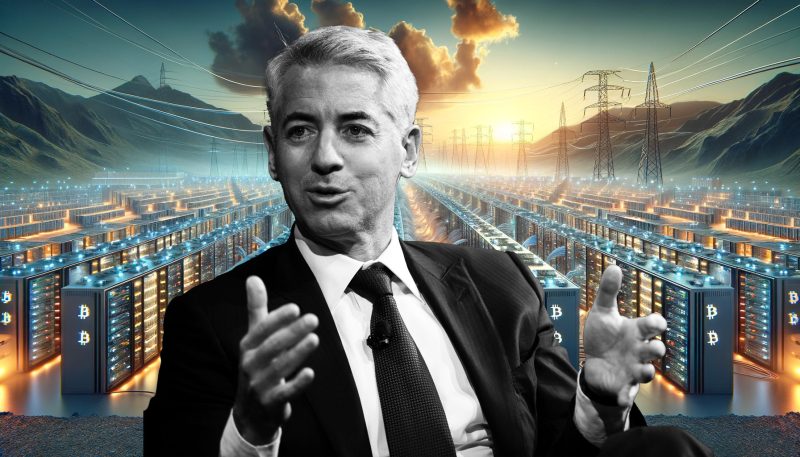Bill Ackman, a well-regarded investor and CEO of Pershing Square Capital Management, outlined a hypothetical scenario that has sparked intense debate among crypto enthusiasts, economists, and environmentalists.
Ackman’s comments touched on several critical issues, including the sustainability of Bitcoin mining, its implications for global energy consumption, and the broader economic consequences of a rising reliance on cryptocurrencies.
He tweeted:
“A scenario: Bitcoin price rise leads to increased mining and greater energy use, driving up the cost of energy, causing inflation to rise and the dollar to decline, driving demand for Bitcoin and increased mining, driving demand for energy and the cycle continues. Bitcoin goes to infinity, energy prices skyrocket, and the economy collapses. Maybe I should buy some Bitcoin.”
He added that this could also work in “reverse.”
Ackman’s “scenario” prompted a spectrum of responses, ranging from defensive retorts to calls for a more nuanced understanding of Bitcoin’s energy use. The debate was further catalyzed by a comment highlighting the considerable energy consumption attributed to Bitcoin mining, likened to that of an entire country’s worth — Greece.
Critics argue that Bitcoin’s energy usage is an undeniable problem with significant environmental implications. In contrast, proponents argue that skeptics need to engage more deeply with the crypto community to understand the complexities of mining and its potential benefits for the energy sector.
Bitcoin is a bottom feeder
Experts in the field, including Michael Saylor, were cited for their views on the energy debate.
Saylor himself added to the debate and argued that Bitcoin mining could actually lead to more efficient energy solutions and drive the adoption of renewable energy sources by creating a demand for cheaper, more sustainable energy.
Alexander Leishman responded by emphasizing the competitive nature of Bitcoin mining, suggesting that the industry’s search for profitability naturally leads to the utilization of cheaper, often renewable, energy sources.
This perspective challenges the notion that Bitcoin mining exacerbates demand for conventional energy resources, arguing instead for its potential role in promoting energy efficiency and sustainability.
Troy Cross argued that increases in Bitcoin’s value do not necessarily lead to higher energy costs, pointing out the sophistication of mining technology and the strategic deployment of mining operations across the globe.
Cross said:
“The cheapest power is power no one else wants, stranded in time or space. Consuming that power is Bitcoin’s destiny. And while it may deviate in a short time frame during outrageous bitcoin price spikes, it will quickly and inevitably return to its rightful place as bottom feeder, not apex predator.”
Meanwhile, Alex Gladstein, known for his environmental advocacy, supported the argument that Bitcoin mining predominantly taps into excess or renewable energy sources. His stance reinforced the idea that the Bitcoin mining sector is contributing to the optimization of the global energy mix rather than detracting from it.
Self-regulating organism
Industry voices like Hunter Horsley and Muneeb Ali projected a future where the Bitcoin network’s energy demand could potentially decrease. They highlighted the blockchain’s halving events and the eventual reliance on transaction fees as mechanisms that will reduce the incentive for energy-intensive mining operations.
A notable argument likened Bitcoin’s ecosystem to a “self-regulating organism” governed by precise mathematical laws that contribute to economic stability. This viewpoint illustrates the inherent predictability and systemic resilience of Bitcoin, contrasting it with traditional financial assets.
By framing Bitcoin and similar technologies as self-regulating organisms, proponents argue for the robustness, adaptability, and innovative potential of these systems. They suggest that, much like living organisms, these systems are capable of evolving and self-correcting in response to challenges, thereby ensuring their survival and relevance in a constantly changing environment.
The post Bill Ackman sparks broad discussion on Bitcoin’s energy use appeared first on CryptoSlate.




